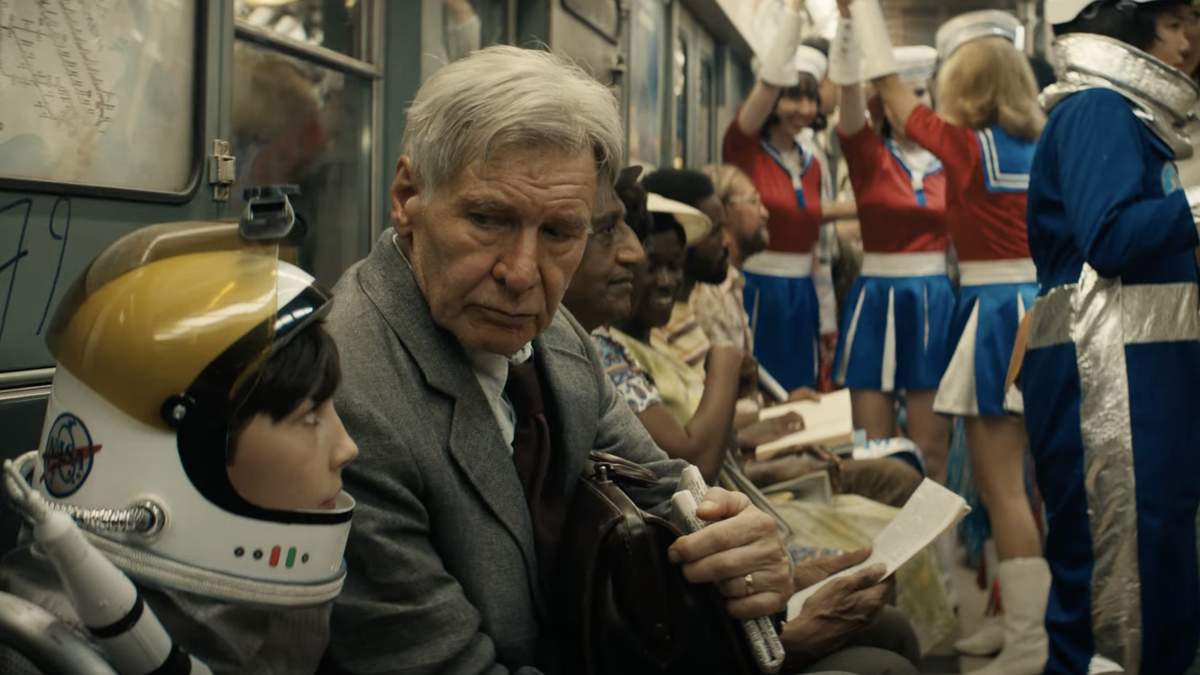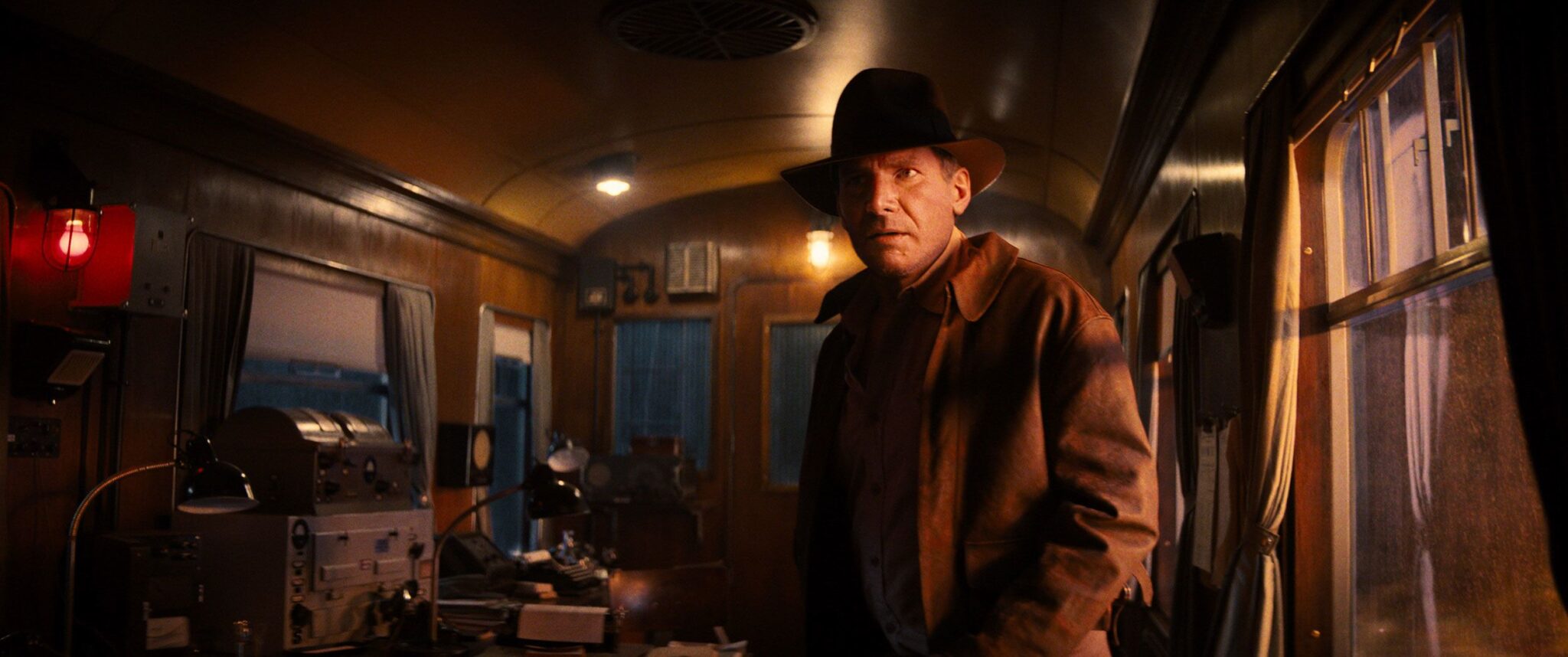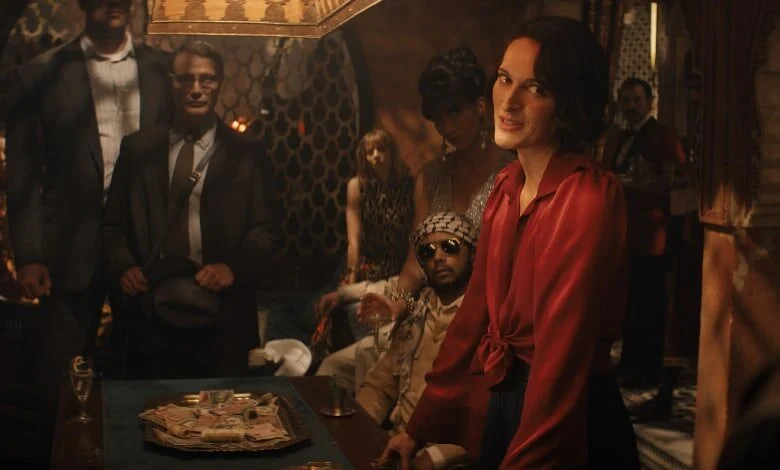It’s no use, I must confess. I am a hopeless cause when it comes to the Indiana Jones movies. I love them, their flaws, often endearing them to me more than the slick and more grandiose offspring the films spawned. More than anything, the films exhibit a pure sense of play so often lacking in modern blockbusters that I hold the movies deep in my heart for that reason alone.
I tell you this so you understand that I understand, rationally, that James Mangold’s Indiana Jones and the Dial of Destiny is not as good as Speilbergs, that it is rough in patches, and maybe doesn’t quite stick the landing, but that I don’t care. I found myself, at times, on the literal edge of my seat. More importantly-genuinely, curious about where it was going to go. Sure, I guessed at the ending-to an extent-but how it would get there and the leaps and bounds the story would take-I watched it all with bated breath.

While Dial of Destiny didn’t make me feel like a kid in quite the same way as Kingdom of Crystal Skulls or the others did, it nonetheless had me clapping and giggling. Harrison Ford feels just as much at home as Indy as he did in Raiders of the Lost Ark. Unlike Kingdom of the Crystal Skulls, Ford’s Indy is allowed to have grown old in a way few icons are allowed to. If anything, Mangold’s allowing Indy to be old without mocking him for it is one of the charms of Dial of Destiny.
However, I was struck by how easy Spielberg has made the last four Indiana Jones movies seem. For all its charms and exciting action, there is a palpable sense of labored execution. At times we can feel Mangold trying to reach for that special spark so infamously tied with Indiana Jones and his iconic adventures and coming up short, but only just so.
Perhaps it’s because of the sense of melancholy that simmers beneath the surface of Dial of Destiny. Indy is retiring and recently separated from his wife Marion (Karen Allen), and both are grieving the loss of their son, who died in Vietnam. Stuck between renegade CIA members who are nazis hired by the government to help with the space race, mobsters in Tangiers, and the return of Indy’s god-daughter Helena (Phobe Waller-Bridge), the daughter of Indy’s old friend Basil (Toby Jones), Indy’s pervasive loneliness tends to temper the excitement.
Even the reappearance of his old friend Sallah (John Rhys-Davies) is a reminder of how things have changed. Sallah is a cab driver, now an American immigrant, and a proud grandfather. Yet, the old man hasn’t lost his step as he can get all the necessary exposition information needed to set Indy off on his way, but it’s the scene the two share at the airport that shows the heart of Dial of Destiny. Sallah offers to come along and tells Indy how he misses the desert, the sea, and the adventure. Indy’s response is a reminder that adventures are fun when you’re young, but as you grow older, they become less exciting because the danger is now all too real.

More than anything, it stems from Indy’s dawning realization that death is a real thing-with definable features. The carefree nature of youth marks the stark contrast between Waller-Bridge’s Helena and her young sidekick Teddy (Ethan Isidore). After a moment when the three narrowly escape, Teddy and Helena revel in the adrenaline rush until Indiana reminds them, “My friend was just shot.” Again Mangold and his writers remind us this isn’t an adventure. Think of it as their way of having Indy say he’s “Getting too old for this shit.”
I like the way Waller-Bridge’s Helena isn’t some Indiana-lite character. She has fewer scruples while at the same time eyes archelogy as “grave-robbing.” In her way, she is just as lonely as Indy, but unlike him, she has immersed herself in the world instead of walling herself from it.
The problem of Dial of Destiny isn’t the actors, which are fun, or the dialogue, which is also fun and somehow never feels overburdened, a rarity when dealing with something like time travel, but the tone. Mangold never falters, but you can sometimes feel the film teetering. The balance between the pulp serial sensibilities and Mangold’s attempt to bring Indy into a new era is shaky, leaving a slightly cartoonish feel to the film.
In a movie with Indy riding on a horse through a subway tunnel and a long car chase sequence through the streets of Tangiers with Indy, Helena, and Teddy in a motorized rickshaw, the real-world elements often seem to clash tonally. The always great Mads Mikkelsen as Jurgen Voller, the sneering nazi turncoat, is both menacing and muted. Mangold and his writers straddle the line between showing the nazis as the hateful buffoons they are and the genuine danger they present. Mikkelsen can sell little moments, such as when he tells a Black hotel worker, “You didn’t win; Hitler lost,” which serves as a chilling reminder that nazism is too often tied to an ill-tempered tiny man with a funny mustache and an inferiority complex and not an ideology that goes beyond the sad little tyrant.

Later, he tells Indy, “Progress doesn’t always go forward. Sometimes it goes backward.” A line that is infinitely more chilling in a world where the Supreme Court has dealt multiple blows to civil rights, Gay rights, and Women’s rights. But then, when the nazi kidnaps young Teddy, Helena is rightfully worried. But Indy tells her it’s okay, “They won’t hurt him.” Right, because the nazis are notorious for not hurting children. It feels more like the screenwriters are trying to assuage the fears of the MPAA that no harm will come to the little boy.
It’s these little things that make Dial of Destiny a bumpy ride. Thankfully, Phedon Papamichael’s camera never fails to give Mangold’s imagery the cinematic heft that keeps the tone from faltering too much. Perhaps it’s Ford’s legendary visage or the way Waller-Bridge’s face is made to be framed in a profile shot, but Papamichael’s frame is always gorgeous, and Mangold rarely settles for clunky staging.
The action sequences sometimes take on a strange video game quality to them. Papamichael and Mangold stage the action and, at times, frame it through a character’s point of view. The duo inch closer and closer to successfully blending cinematic and video game language into the action in an organic way. It feels at once voyeuristic while also somewhat immersive.
About forty minutes into the movie, I had to go to the bathroom. I did a quick calculation in my head and decided there was enough of a lull in the film for me to dip out. I’m not sure if I missed anything, but I’ll leave you with this little fact. After I was done, I ran back to the theater, not because I was afraid I might miss something important, but because I didn’t want to miss anything.
I dunno; maybe I just get a kick out of people fighting nazis and calling them stupid. It’s the little things that console me.
Images courtesy of Walt Disney Motion Picture Studios
Have strong thoughts about this piece you need to share? Or maybe there’s something else on your mind you’re wanting to talk about with fellow Fandomentals? Head on over to our Community server to join in the conversation!

